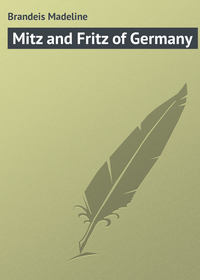 полная версия
полная версияLittle Philippe of Belgium

Brandeis Madeline
Little Philippe of Belgium
PEOPLE WHO POSED FOR THE PICTURES
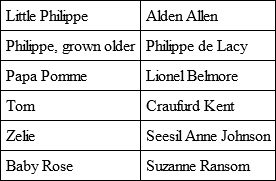
Little Alden Allen looks so much like Philippe that he might have stepped right out of this book. He is also a sweet lovable little boy.
Lionel Belmore – well, just look at his jolly round face! Isn't he Papa Pomme to perfection? Mr. Belmore is a famous English actor, and he posed for Papa Pomme because he loves to do all he can to please boys and girls.
Craufurd Kent is another famous English actor. And although it is hard to believe, from looking at these savage photographs, he also loves boys and girls and he hopes you won't think him like Tom in real life. I can assure you he isn't a bit, except that he whistles a lot and does it beautifully.
Seesil Anne Johnson is a talented little girl, who has worked in many motion pictures. She seems to have Zelie's sad eyes, though of course, she has no reason to be sad, and she isn't. On the contrary, she is very happy, for she has six brothers and sisters to play with.
Suzanne Ransom is another little motion picture girl, and she is just like Philippe's Baby Rose. Don't you think so?
Now we come to the hero of the story, Philippe de Lacy. Philippe's life itself is a story; only I could not tell it all to you, for it would take most of the pages in this book to do so. You may already know that Philippe is one of the best beloved boy-actors in the world. Perhaps you do not know that during the war, Philippe was found in a deserted village in France and adopted by a kind English nurse. She brought him to America, and today there is no happier pair in Hollywood than these two. You see what a fine boy Philippe has turned out to be. And I need not add that Miss de Lacy is a proud mother.
In the book little Philippe's adventure started because of that war picture which he saw with his father. In real life, little Philippe's adventure also started because of the war. But in the book Philippe's experience was not pleasant and he was glad when it was over, while the real Philippe's adventure was pleasant, and we are all glad for him that it is going on and on.
Madeline Brandeis
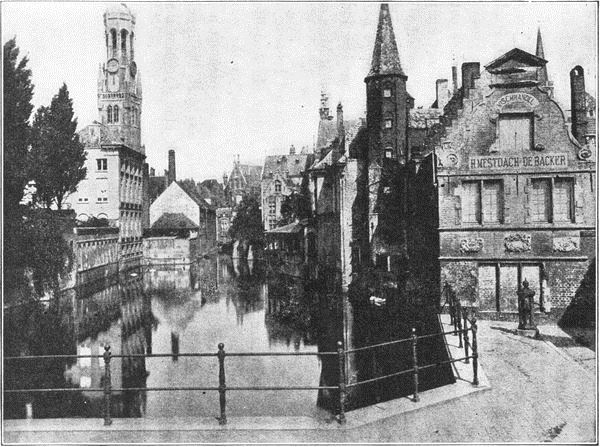
VIEW OF A CANAL FROM THE ROSARY DOCK, BRUGES
Chapter I
THE BRUSSELS SPROUT
The Brussels Sprout sat among the cabbages, thinking.
The Brussels Sprout was not a little vegetable. He was a little boy. His name was really Philippe. But he was called "Petit Choux de Bruxelles" (pe-tē´ shōō de brük-sel), which means in French, "Little Brussels Sprout." French is spoken in Brussels, and this little boy was born in that city.
But he now lived on a farm a few miles outside of Brussels.
The name "choux" (shōō) or "cabbage," is often used as a pet name. That was the reason why Philippe's parents called him Little Cabbage or Sprout.
Sprout was a very good name for this little boy, because new ideas were always sprouting in his head.
He was always dreaming dreams and wishing wishes. He was never satisfied.
One of his dearest wishes was for a little sister.
Today he sat among the cabbages and thought deeply. He was wondering why one of the cabbages did not open and give him a baby sister.
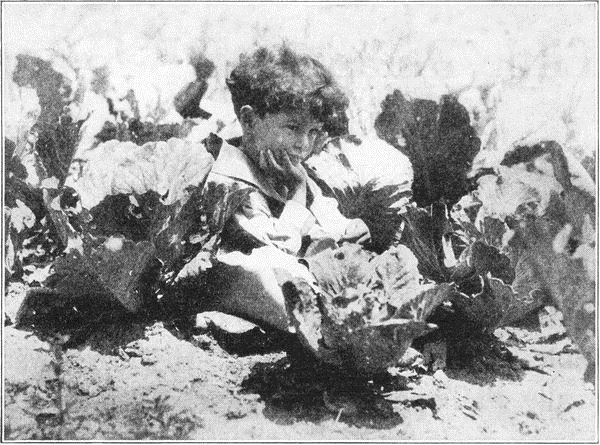
SPROUT SAT AMONG THE CABBAGES
This may sound queer to you. But Philippe was only five years old, and he believed very earnestly that babies pop out of cabbages.
It is a Belgian folk tale. Philippe had planted these cabbages in his garden for this very purpose.
But no baby sister had popped out of a cabbage yet.
Philippe wanted a baby sister with whom to play. He was the kind of little boy who always longed for something.
He was not really discontented. But he liked new things to happen. And besides he was a bit lonely on that farm, with nobody to play with him.
"Why do you look so sad today, my little cabbage?" asked his mother.
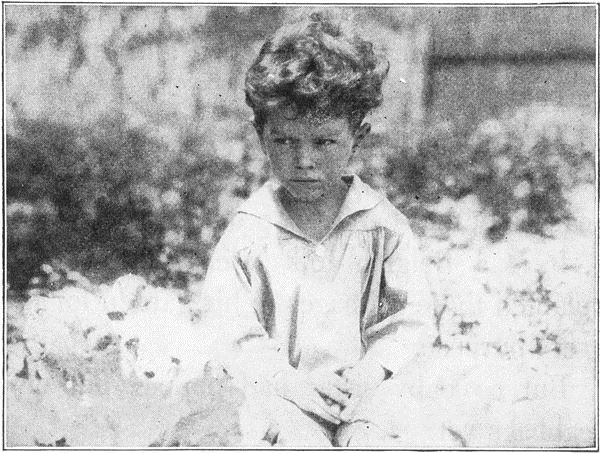
HE WAS NEVER SATISFIED
She had just come out of the house and stood looking down at him.
"I am thinking that never will the baby, Cauliflower, come!" he answered.
Cauliflower was what Philippe had determined to name the sister for whom he longed. Cauliflower in French is "choux fleur" (shōō-flûr), which means "cabbage flower."
"Are you quite certain that none of the cabbages moved today?" asked Mother Yvelle (ē-vĕl'), smiling strangely.
Philippe shook his head and replied, "They are all quite still, Mamma. The little sister is not coming."
Then Mother Yvelle laughed and threw both arms about her little boy.
"Do not say that," she cried.
Philippe looked at her and saw a shiny light in her eyes. Mother Yvelle said softly, "Soon – soon – the great day is coming when my Philippe shall be a little brother!"
A little brother! Philippe could hardly believe the words that Mother Yvelle had spoken. But it was true. Mother Yvelle spoke only the truth.
When Mother Yvelle went into the house, Philippe looked at each cabbage carefully.
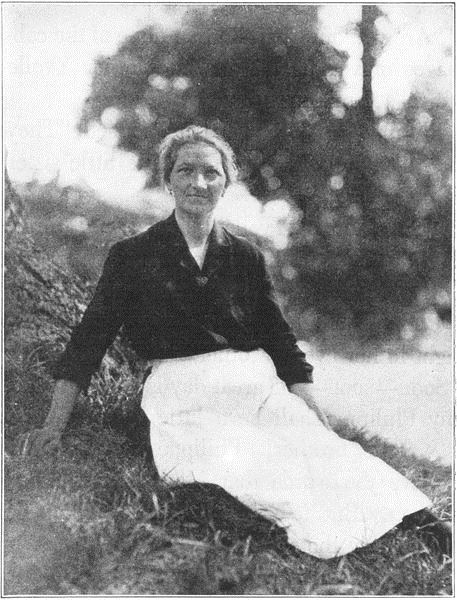
MOTHER YVELLE
"Which one will it be?" he wondered excitedly. "Which cabbage will open and give me my little Cauliflower?"
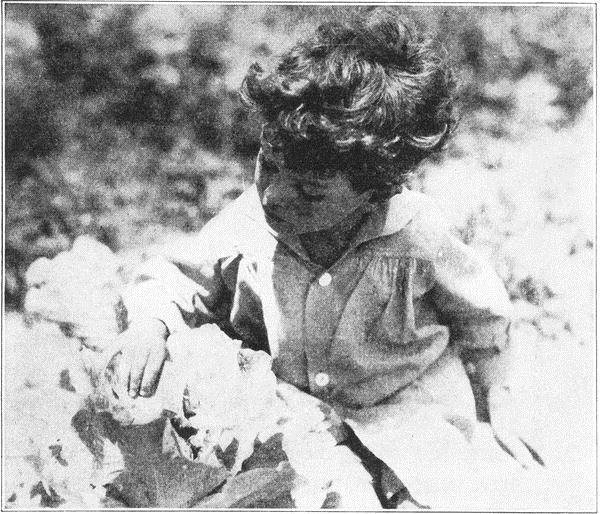
"WHICH ONE WILL IT BE?"
Philippe was happy beyond all dreams. He examined each vegetable. But he could find no sign of the coming baby in any of them.
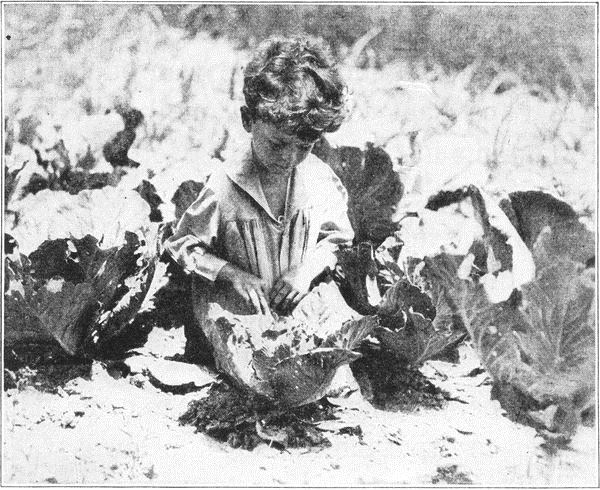
HE EXAMINED EACH VEGETABLE
He went to the barn. There he spoke to the big dogs, his only companions. He told them the great news.
These dogs did not have much time to play with a little boy. They were usually working. For Belgian dogs draw carts for their owners.
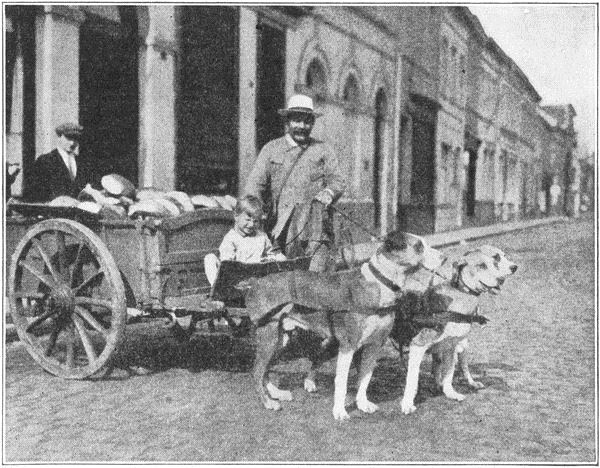
BELGIAN DOGS DRAW CARTS FOR THEIR OWNERS
Philippe's mother had a big vegetable cart. Nearly every morning she loaded it with peas and beans and carrots and onions. She then hitched the dogs and drove them to the market place in Brussels. Here she would sit at a stand and sell her fresh vegetables.
Philippe usually went with her. But sometimes he stayed at home with the gardener.
Philippe's father was a chef. Papa Paul was a very fine chef and could cook some of the best French and Belgian dishes.
He cooked in a fine restaurant in Brussels. He came home late at night, and so Philippe saw little of his father.
But he admired his father very much. He wanted to cook the way his father did some day. That was another great desire in the heart of this little boy. Philippe dreamed of some day becoming a chef like his father.
But he did not look like Papa Paul. Philippe's father was stout and round and smiling. And Philippe was rather slender, and had a serious little face with big dreamy eyes. He was like his mother.
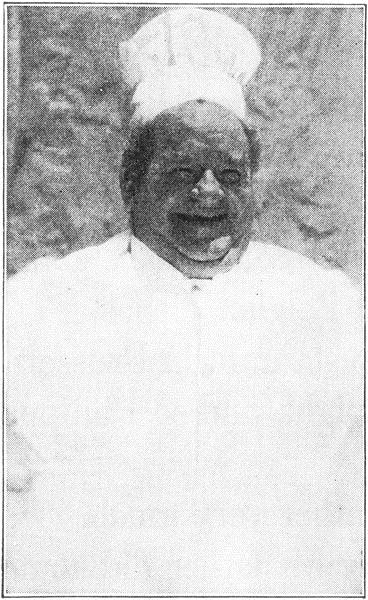
STOUT AND ROUND AND SMILING
Mother Yvelle was thin and pale and sad-looking.
You see, she and her husband had lived through the terrible World War.
There are, however, people whose dispositions are so jolly that they forget sadness. Philippe's father was one of these people. Though Papa Paul wore a wooden leg, it did not seem to affect his sunny smile. When he was in the war he had been shot in the leg, and now he wore a leg of wood. He had been a chef only since the war.
Before the war Philippe's parents had farmed and raised vegetables together. They had been happy farmers. But their farm had been blown to bits by the enemy.
Many stormy years passed, and many terrible things happened to these poor people. But finally the sunny smile won out. Here was Papa Paul cooking in one of the best restaurants in Belgium, while Mother Yvelle was the farmer.
Mother Yvelle looked forward to the day when Philippe should be old enough to help her drive the dogs to town with the vegetables.
Philippe, too, wanted that day to come. He wanted to drive the fine dogs to town.
From the barn he made his way to a tiny shack, which was his own little kitchen. Here he spent many hours over a small stove his father had made for him. He prepared dishes that he thought were very fine.
Today he had gathered some vegetables and carried them with the other things he had in his arms.
"What are you going to cook today?" asked the gardener, Emile (ā-mēl´).
He stood in the door holding a big rake and looking amused.
"A stew – a very fine stew," answered Philippe, and he began to pour a number of things into a pot.
"What are you putting into the stew?" asked Emile.
"Onions and peas, some rice, a nice little fat snail and a root," the boy replied, as he began to stir.
"A root? What kind of a root?" inquired the gardener.
"Oh, a root that I found. A very big one. I dug it up."
Emile laughed and moved on. One could never tell what went into Philippe's stews. Sometimes Emile was made to taste them. Then he had to tell Philippe that the stews were good. But Emile always had to drink some water afterwards to wash away the taste.
But then Philippe was such a little boy. Besides, the gardener felt sorry for him, because he was lonesome.
Philippe called the gardener Emile Epinard (ā-mēl´ ā-pē-när´), which means "Emile Spinach." And, indeed, Emile did look like a ragged leaf of spinach!
Philippe had a vegetable game. He always tried to think what vegetable each person looked like.
Then he would call that person by the name of that vegetable. It was fun.
For instance, he always called his father "Papa Pomme" (pōm), which means "Father Apple." This name rather shocked Mother Yvelle. But it pleased the jolly round chef. He would tell his friends about it and laugh until his fat sides shook.
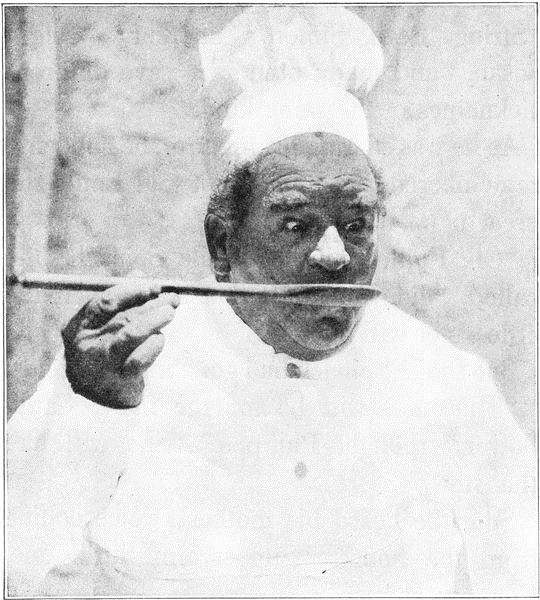
PAPA POMME WAS A VERY FINE CHEF
Philippe had a friend whom he called "String Bean Simon," another, "Celery Susan," and many others he gave different nicknames of the same kind.
As he was stirring his mixture, he suddenly remembered that he had not told Emile the great news.
"Oh, Emile Spinach, Emile Spinach," he called, "did you know that soon, soon the little sister will be here?"
But Emile Spinach had gone into the fields.
"This stew will be for the baby, Cauliflower," thought Philippe. "She will like this stew."
Soon he heard his mother's voice calling from the house, "Supper, my little one. Come to supper."
Carrying his precious pot, he started toward the cottage. On the way he once more examined the cabbages.
But there was still no sign of a baby in any of them.
As he neared the house, he noticed a beautiful rose growing near the wall.
It had been in full bloom the day before. Now it was beginning to droop. Philippe looked at it pityingly.
"Poor rose!" he said. "Tomorrow you will be dead."
Then he went into the house.
The next morning Philippe arose early. He ran to the cabbage patch. But the cabbages all looked neat and whole. None had been disturbed during the night.
"She has not come!" moaned poor Philippe.
Sadly he started toward the cottage, when again he noticed the rose. But this time it was only the stem he saw. The petals all had fallen to the ground.
"Poor rose!" he sighed. "She is dead!"
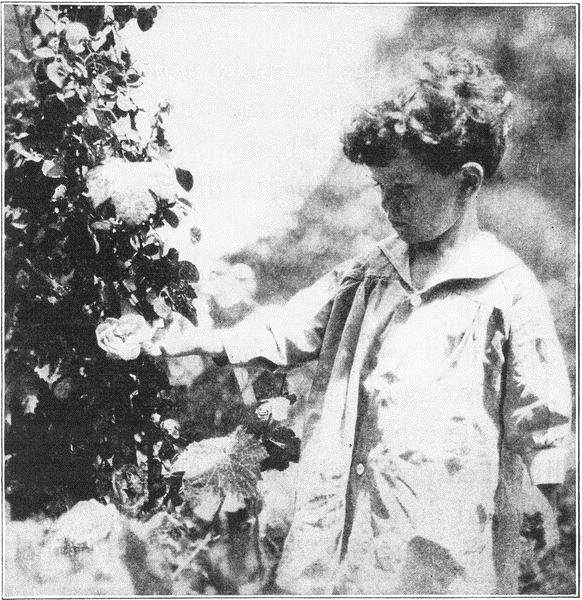
"POOR ROSE," HE SAID
There was a step behind him. A heavy hand was laid on his shoulder.
His father's deep, fine voice boomed, "What are you saying, my little cabbage?"
"Poor rose is dead!" answered Philippe sadly.
"What!" exclaimed Papa Pomme. "Why, Baby Rose is born!"
"Baby Rose?" questioned Philippe.
"Yes, my son," Papa Pomme said. "Your little sister came to us last night – your little sister Rose."
Philippe leaped up and threw his arms about his father's neck in a burst of joy. At last his little sister was here! Then he looked at the dead rose, and from it, to the live and healthy cabbages. He smiled knowingly.
"Papa Pomme," he said, "it was not from the cabbage that Baby came. So, you see, she shall not be our Cauliflower. It was the rose that opened to give her to us. That is why she is our Baby Rose."
Chapter II
PAPA POMME'S SURPRISE
For over a year now Philippe, the little Brussels Sprout, had been going to the market place with Emile Spinach. Mother had to stay at home with Baby Rose.
Philippe felt himself almost a man now. If only Emile would stay at home and let him drive the dogs alone! Ah, that would be heaven, indeed. Another dream was to bring his precious Baby Rose to the market place some day. Philippe was always wishing wishes.
Rose was so tiny. At first she could only laugh at Philippe's happy face as he bent over her cradle. She pulled his hair or clutched his finger.
Now she could stand alone and say a word or two. She was beautiful. She was fair and dainty, and her eyes were as blue as a summer sky. How Philippe loved his Baby Rose!
Soon Mother had promised to bring her to the market place. What a proud boy Philippe would be when he might set her upon the low cart on top of the vegetables and drive her to town! The fine, sleek dogs would be proud, too, knowing that a rare flower rested upon their vegetable load.
Philippe had a sweet voice and sang a number of Belgian folk songs. He was beginning to teach his Rose a little vegetable song which he had made up.
He had a fine plan. He wanted to station Rose in the market place, and have her sing for the passers-by. How proud the little fellow was of his baby sister!
Today as he walked along beside the sturdy dogs, he sang gayly. He was happier than usual. Today an exciting thing was to happen. Papa Pomme had told him that he would call at the market place and take him to lunch. Papa Pomme did not often do this. But today he was given the afternoon to himself.
Papa had put his finger to his lips and said mysteriously to Philippe, "You shall dine with me, little one; and then, in the afternoon – ah, you shall see!"
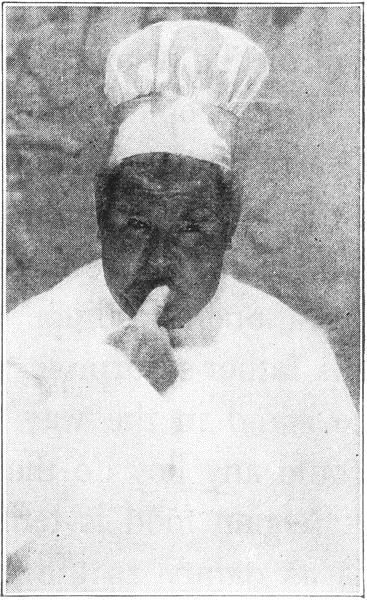
"AH, YOU SHALL SEE"
So as Philippe walked along, he wondered what surprise his father had planned for the afternoon. When he reached the market place, or Grande Place (grän pläs), as it is called in French, he helped Emile Spinach unload the vegetables. Many other farmers were arranging their wares. Some sold beautiful flowers, and others sold fruits. There were portions of the square set aside for sellers of birds and dogs and all manner of different articles.
The Grande Place in Brussels is one of the most beautiful places of its kind in the world. There stands the city hall, built half a century before America was discovered. There are many other beautiful, gilded buildings. The Grande Place in Brussels shines in the splendor of past glory.
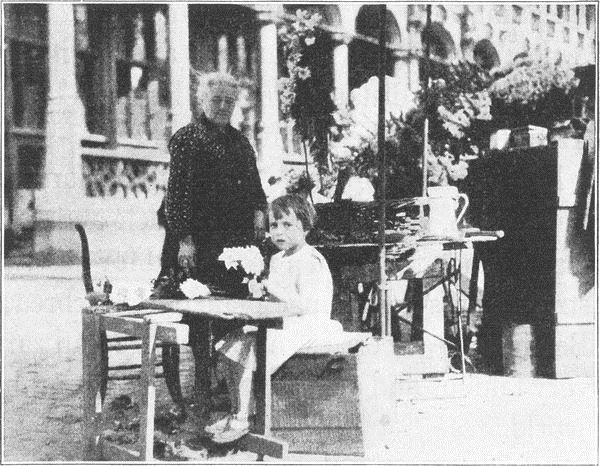
SOME SOLD BEAUTIFUL FLOWERS
Here sat the little boy, Philippe, and helped sell his mother's vegetables. He often glanced at the clock and hoped his father would not be late. He wanted to know what Papa Pomme was planning for the afternoon.
Papa Pomme was on time. He took his son by the hand. They made their way to a restaurant, where little tables were placed out on the sidewalk.
Here people sat in leisurely style, eating hearty dinners. The jolly-faced chef and his little son settled themselves at a corner table. The menu before them was indeed tempting.
Although Philippe was anxious to know his father's surprise, he could not allow it to stand in the way of his appetite. How could any boy do that?
Belgian food is tempting to everyone. It is as dainty as the French food. It is as wholesome as the Dutch. And it has something about it that is neither French nor Dutch, but purely Belgian.
Perhaps the reason lies in the fact that Belgium is so small. It is a matter of only a few hours for vegetables and fruits to travel from a distant farm to a Brussels table. Therefore, all food is fresh.
Papa Pomme ordered "potage," the famous thick soup, dear to all the French and Belgians. Then they had a roast, and for dessert, strawberries and a huge plate of gingerbread. Belgian strawberries and gingerbread are very famous and are said to be the best in the world.
While they ate, they did not talk. Eating was a serious matter with Papa Pomme and Philippe.
So absorbed did Philippe become that he forgot his manners. He reached across the table and pulled toward him the long loaf of French bread.
"Ho, ho!" cried Papa Pomme. "Not so fast! Come! Do you not use your tongue when you want something which is beyond your reach?"
Philippe blushed. Then he replied stoutly, "Yes, Papa Pomme; but my arm is much longer than my tongue!"
Papa Pomme laughed and gained another pound. Philippe went on eating happily.
When they left the restaurant they walked down the street together.
"Papa Pomme, where are you taking me?" asked Philippe, puzzled.
For Papa Pomme was acting in a very mysterious way.
"Do not ask yet!" he said. "Soon you shall see."
Soon Philippe did see. For they stopped in front of a big theater. In Europe a motion picture theater is called a cinema.
"Now, little Philippe," laughed Papa Pomme, "you know my surprise!"
Philippe threw his cap in the air and shouted, "Hooray! The cinema!"
It was a special treat to the little boy to be taken to the cinema! He had been to one only once before in his life.
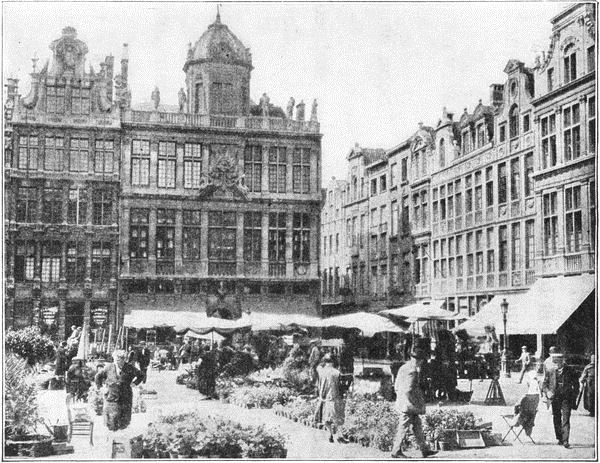
GRANDE PLACE, BRUSSELS
They were to see a great film today. It was the story of the World War and the part that little Belgium had played. It showed how the enemy had started to march through Belgium in order to reach Paris. It showed how the loyal Belgians and their brave King Albert had helped the Allies to win their victory by stopping that march.
Long ago a treaty had been made which said that no nation should take an army through Belgium to attack another nation. If ever such a thing happened, it was Belgium's duty to stop them. In the year 1914, an enemy did try to go through her land. Belgium might have neglected her duty. She might have remained quiet and allowed the enemy to pass. Had she done this, she would never have been destroyed as she was. The enemy would have marched quietly through and left Belgium to its peaceful life.
The film showed how the Belgians fought. Still Belgium could not hold out against so powerful an enemy. At last she was conquered. But when that time came, the French were ready, and so were the English. So Paris was saved.
The audience shouted and clapped. But after that came sighs. The film showed how pitiful and sad was this poor little Belgium after the war.
That film left in the heart of Philippe a new dream. It was that film which was really the cause of the little boy's later adventures.
Chapter III
A NEIGHBOR
Five years passed. Philippe was now a tall boy of eleven. He was still called Sprout, and he was still full of wishing dreams and dreaming wishes.
But those dreams and wishes had changed since the time when he had longed for a baby sister. Of course, he never stopped being glad about Rose. She was the dearest little sister that a boy could have.
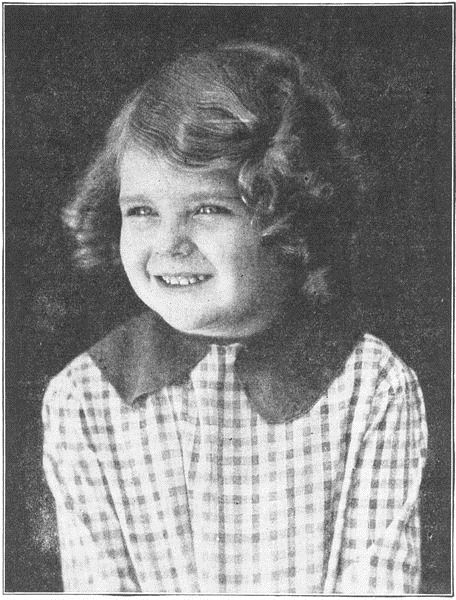
LITTLE ROSE
Philippe's desire to be a cook had disappeared. He had changed since that day when Papa Pomme had taken him to the cinema. For Philippe never forgot the film he had seen.
Philippe never forgot those terrible battle scenes. Often his eyes would fill with tears at the thought of the sad struggle and the bravery of his little country.
The boy who had once dreamed of vegetables now had other dreams. The little boy, who had wanted some day to be a chef, now longed to become a great hero like his own country's king. He longed to do a great deed himself and to have adventures. But all he could do was to sell vegetables.
No, that was not all. Now he could read about his country. And he did. Philippe read and read. Every book he could find he devoured. Stories of Belgium's cities and people Philippe learned and loved. Tales of wonder kept him interested for hours.
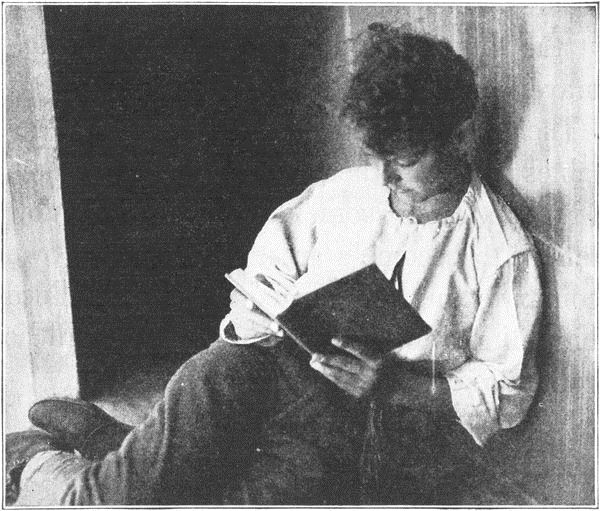
PHILIPPE READ AND READ
"If only I might travel and have adventures!" sighed the little vegetable boy.
He was now old enough to drive the dog-cart to market alone. He went each day, with Baby Rose perched on top of the vegetables, laughing and gurgling with joy.
All the way to town Philippe sang with his little sister. When they reached the Grande Place, he set the baby upon the counter. Then the little girl, with her golden curls and her sunny smile, and the tall, handsome boy, with his wavy hair and his dreamy eyes, sang and attracted many people to the booth. It did not take them long to sell their vegetables.
Now as Philippe unloaded his produce, he did not know that today something unusual was going to happen. Rose fluttered about and filled the dogs' drinking bowl. All dog-carts in Belgium carry drinking bowls, and a bit of carpet for the animals to lie down upon. Rose filled the bowl, and the huge beasts licked her hands with gratitude.
There was a new member of the dog family who had come to town with them today. It was Trompke (trŏmp'-ky). Trompke was a puppy. He did not work. He was Philippe's own puppy.
"Trompke" means "tambourine" in Brussels French. The puppy was thus named because he had such a fat little round tummy.
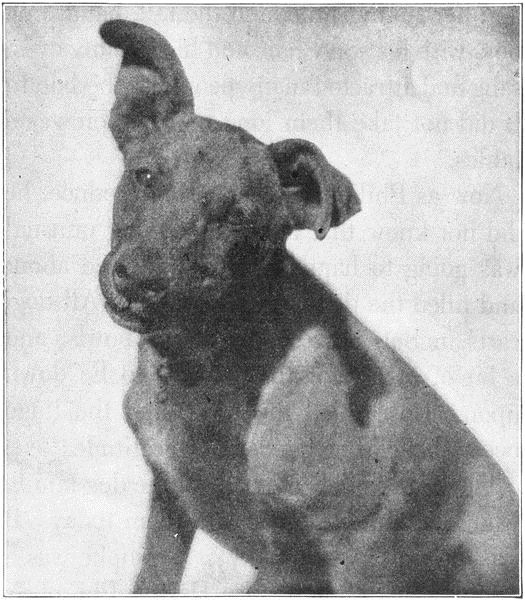
TROMPKE
Trompke loved Philippe. Today was the first time he had been allowed to follow the cart to town. He was wild with excitement.
"Stop barking, Trompke!" commanded Philippe, as he arranged the vegetables on the stand.
"Lie down, Tum-Tum," cried Baby Rose.
And Trompke lay at the baby's feet.
Just then Philippe noticed some one in the booth next to their own. A tall man was moving about arranging vegetables. This booth had not been used for a very long time.
"Now," thought Philippe, "we shall have a neighbor."
Philippe smiled at the man, who was staring at the two children. Then the man looked down at the puppy, which was whining unhappily at Philippe's feet.
"Keep him quiet," said the man angrily.
Philippe answered, "He means no harm. He is only excited. It's his first trip to town."
The man did not answer but turned toward his vegetables. Philippe was puzzled. He had never before met anyone like his neighbor.
The man wore ragged clothes, and his face was sunburned. His eyes were coal black and seemed to flash fire. He had a wild look about him. He was tall and moved like a cat.
Suddenly he leaned over toward Philippe.
"Keep that dog quiet, will you?" he snarled.
Trompke was still whining softly, though he could hardly be heard.
"He does no harm," answered Philippe.




